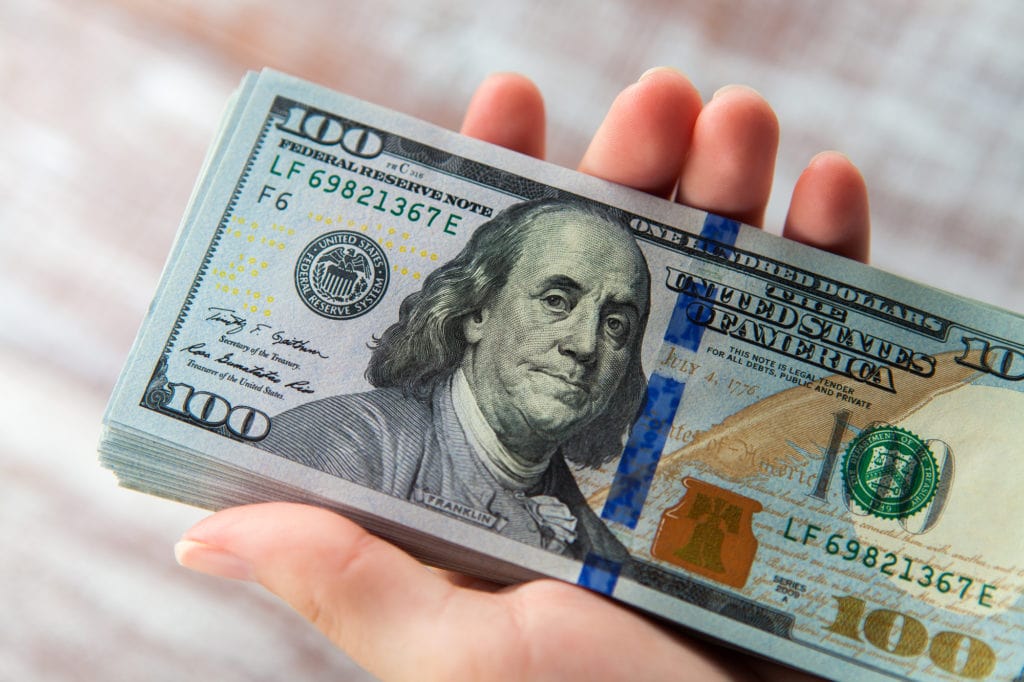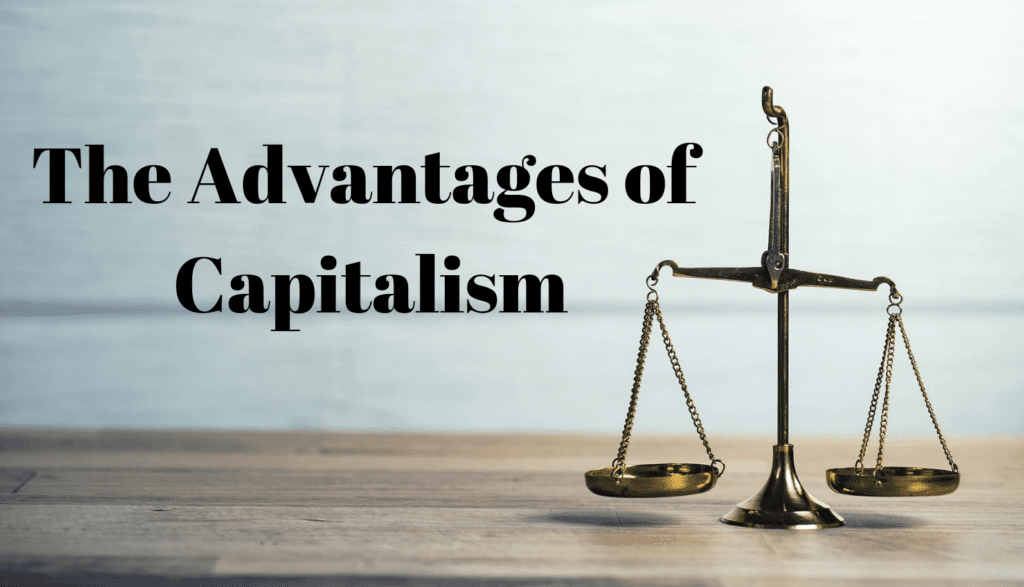Being alive right NOW excites true capitalists. Living in the moment and creating change is the name of the game. Innovative entrepreneurs continue to make the world a better place.
Of course, you can't say the word capitalism without hecklers spouting off baseless claims:
"Capitalism only benefits the rich!"
"Yeah, and Capitalism keeps people in poverty!"
"Capitalism promotes social inequality!"
"And worst of all, Capitalism destroys the environment!"
"Bill Gates created capitalism to achieve world domination!"
Cynics insist things were easier before capitalism was ever a thought. But what they fail to realize is how much better their life is because of it. Capitalism welcomes change, promotes innovation, and solves problems. It also creates a system where ANYONE can succeed.
Do you still want to travel back in time when everything was "easier"? Let's examine how capitalism reshaped the world as we know it.
Lengthened Life Spans Around the Globe
As Jiminy Cricket once sang, "I'm no fool, no siree! I want to live to be 93. I play safe for you and me cause I'm no fool." Now, living that long is a reality for many people across the world. Because of capitalism and the innovation it creates, people live longer than ever before (even some foolish ones).
According to the Visual Capitalist, "Rising life expectancies are an indication of a society's growing access to healthcare options." And where do people live the longest? In free-market and capitalistic societies.
The global life expectancy is now an impressive 72.2 years. That's a massive increase from the 29-year average back in 1800. And out of all the countries, Japan has the highest life expectancy at 84.1 years. However, some of the more underdeveloped countries still lag. Sierra Leone, for example, has an average life expectancy of 52 years.
Why is Sierra Leone so far behind the curve? A lack of quality healthcare and a shortage of clean water are both to blame. The country is also one of the most impoverished in the world. Corruption runs deep, and a lack of competition prevents business freedom. Perhaps a well-intended capitalist will find a way to solve the labor and financial problems plaguing the country.

Those who live in genuinely capitalist countries don't often realize the amount of privilege they have. We frequently take for granted how easy it is to find a doctor or hospital. And we have the freedom to choose a provider. Competition ensures there is always someone ready to come out with something bigger and better. Who knows? Maybe most humans will live to be 103 one day!
Thanks to capitalism, people live decades longer.
Read all about even more advantages we enjoy, thanks to capitalism.
Healed the World Through Innovative Medicine
When was the last time you got sick? The mere fact that you're still here today to read this is proof that capitalism works. After all, it wasn't very long ago when a simple infection was a death sentence.
Capitalism and medical innovations go hand-in-hand. The latter only exists because of the former. But too many naysayers believe capitalism is the Antichrist. They spew unsubstantiated claims that the profit motive increases prices and promotes greed. Is there any truth to these rumors? Hardly.
While the profit motive does entice entrepreneurs to continue innovating, genuine capitalists don't put money before people. Instead, they work around the clock to create proven solutions in the medical field.
There are plenty of examples demonstrating capitalism doing great things in modern medicine. But we only need to study the COVID-19 pandemic for validation. In less than one year, medical innovators introduced not one, not two, but three highly-effective vaccines to the public. As of mid-March 2021, one in six adult Americans has received either the Moderna, Pfizer, or Johnson & Johnson vaccines.
Thanks to capitalism, fewer people will die from COVID-19 and other illnesses.
See how capitalism sparks medical innovations.
Boosted the Odds for Children

Losing a child is something no parent should experience. But in the early 1800s, about 43% of children died within the first five years of life. Thankfully, this number is now much lower. As of 2017, the child mortality rate is 3.9% across the globe.
Why are kids living longer? Capitalism. Once again, we can thank capitalist societies for improving the odds for children. Innovations in prenatal care, vaccinations, and education are the primary drivers behind this much-improved statistic.
However, preventable childhood deaths are still high in the poorest countries. The child mortality rate is 12.7% in Somalia, for instance. Even Venezuela saw a dramatic increase in infant deaths as its socialist government allowed public services to crumble. People living in impoverished countries don't have access to the same innovations or freedom as those living in actual capitalist societies. Unfortunately, lack of healthcare and education often hurts children the most.
In the US, parents have access to high-quality doctors, specialized hospitals, and excellent preventative care. As a result, the odds of losing a child to a treatable illness are much lower than in other parts of the world. And as more innovations enter the market, more children will have a second chance at life. Once again, capitalism wins.
Thanks to capitalism, fewer parents will bury a child.
Improved the Workplace with Weekends
Enjoy having the weekends to yourself? Shorter workweeks exist because of capitalism. Not even 100 years ago, people worked around the clock to keep a roof over their heads. Today, the majority of employees enjoy 40-hour workweeks. Many hold Saturday and Sunday sacred.
Let's travel back in time to the mid-1800s. The typical workers clocked in for over 60 hours, and much of what they did was back-breaking manual labor. Why did they work so hard? Employers needed large quantities of staffing to produce the desired output. However, innovations led to a drastic improvement in productivity. Subsequently, the amount of required labor decreased.
But what does this have to do with capitalism? In simple terms, capitalism thrives thanks to the free market. Competition in the workplace meant that companies had to fight for the best employees. They had to offer better pay, more benefits, and shorter hours than competing brands. And guaranteed time off on the weekend became a huge selling point.
In 1926, Henry Ford was one of the first to enact the now-standard 40-hour workweek. He believed if consumers had more free time, they would spend more money. And he was right. In 1940, Congress amended the Fair Labor Standards Act. They implemented a 40-hour workweek nationwide.
Because of capitalism, workers now have a say in when, where, and how much they work. Don't like the perks of your current job? It's within your right to apply for a new one. The companies that create the most respected, enviable workplaces come out on top.
Thanks to capitalism, employees work less.

Raised Education Levels for All
Education is vital to everyone. It teaches people how to be productive members of society and prepares them for real-world experiences. But in the 1800s, few children received a quality education. Upon first glance, historic one-room schoolhouses look pretty cool. But most kids only attended school 132 days per year.
But that's just history, right? People go to school much longer nowadays, correct? Not necessarily. Even today, especially in poorer parts of the world, too many kids drop out after only a few years to provide for their families. It's not by choice but rather by necessity. While the global average for schooling is 8.4 years, those living in Burkina Faso only attend about 1.5 years.
Capitalism plays a crucial role in all facets of the education system, including public education. Parents want their children to receive the best education possible. The system creates a demand for qualified teachers and administrators. Private schools must produce results to justify tuition rates. When schools underperform, parents demand answers.
The demand for better educational opportunities led to the advent of charter schools. Capitalists saw this as an opportunity to provide higher-quality, more specialized schools to students everywhere. Oddly enough, most charter schools are free to attend. They receive funding from the state. But they have to meet strict enrollment numbers to thrive.
Providing more choices to parents and students improves graduation rates. The national graduation average is around 88%. Some states report an impressive 94% graduation rate. Of those who graduate, 66.2% immediately enroll in college.
Thanks to capitalism, kids learn more in school.
Learn more about charter schools here and why the government simply cannot provide affordable education.
Lifted Lives Out of Poverty
Anti-capitalists want everyone to believe that capitalism promotes poverty. However, the opposite is true. Capitalism is good for the poor, and it can even lift people out of poverty.
Society is only as strong as its weakest members. Poverty hurts the rich, the middle class, and the poor. According to the 2019 US Census, 30 million Americans live in poverty. While that number may seem high, the poverty rate decreased 4.3% between 2014 and 2019.

Contrary to what opponents claim, capitalists want people to succeed. Instead of sweeping poverty under the rug, entrepreneurs seek out ways to eradicate it. They introduce products to better the lives of others. Then, they find innovative ways to bring opportunity to the less fortunate. They give back to the community.
But perhaps the most significant way capitalism improves poverty levels is through job creation. Small businesses represent 47.3% of the US workforce. And over 5 million small business owners hire 1-19 employees.
Jobs are the number one way to reduce poverty. Since capitalism encourages small businesses, it also boosts the number of available jobs. As the competition for skilled workers increases, it gives qualified applicants room to negotiate. Fruitfully employed individuals have more money in their pockets. They spend it on goods and services. And when the economy thrives, it increases the demand for new jobs. It's the circle of capitalist life, and it moves us all!
Thanks to capitalism, fewer people live paycheck to paycheck.
Think the universal basic income would work this well?
Narrowed the Gender Gap
Capitalism recognizes both men and women contribute to society. Unfortunately, some feminists don't believe that capitalism and feminism can coexist. But like all the other myths, this statement isn't true. Feminists have more access to opportunity thanks to capitalism.
How so? Capitalism promotes workplace equality. It creates an environment where the best workers thrive, no matter their gender. Further, it encourages female entrepreneurs to start businesses and uncover new opportunities.
Females also have more access to capital than ever before. Once upon a time (and not that long ago), banks refused to loan money to women. It wasn't until the 1960s when women finally gained the right to open a bank account without a man. In 1974, the Equal Credit Opportunity Act finally prohibited banks from denying credit based on gender.
Today, a female entrepreneur can walk into a bank, present her business idea, and apply for a small business loan. Since women-owned businesses generate over $1.8 trillion a year, it only makes sense for lenders to oblige.

And successful women don't have to start their own businesses. Females can apply for the same jobs as men. A sexist mindset no longer predestines a strong woman to become a thankless, stereotypical Girl Friday. Because of capitalism, she can work in any industry while earning just as much (if not more) as her male counterpart.
Thanks to capitalism, women have the same opportunities as men.
Here are 10 female entrepreneurs whose stories will inspire you.
Increased the Availability of Food
Food is a basic human necessity. Without it, people would cease to exist. Not all that long ago, food scarcity was a significant concern. Humans were one drought or natural disaster away from starvation. In 1968, Dr. Paul Ehrlich, an entomologist at Stanford University, predicted that overpopulation would cause mass starvation. "The battle to feed all of humanity is over. Hundreds of millions of people are going to starve to death." But because of capitalism, humans now have access to an abundance of food.
Capitalism succeeds because of supply and demand. Since there is always a demand for food, brands continue to manufacture and sell it. Innovation ensures there's always something new and different on the shelves. Demand for new restaurants and grocery stores creates more jobs.
Countering the protests of skeptics, capitalism actually helps to reduce food insecurity. Competition for easy-to-find, low-cost foods makes it affordable for most people to feed their families. Moreover, capitalists promote charitable giving and create solutions to help those in need.
Thanks to capitalism, no one has to go to bed hungry.
Advanced Technology Through Innovation
We live in the age of technology. It profoundly impacts everyone. Ask any Gen-Xer (or elder Millennial), and they'll happily tell you how innovations in technology shaped their lives. New technology seems to appear overnight. While some inventions are purely for fun, others make a huge difference in the world.
Socialization is critical to mental health, and technology lets people stay in touch. Imagine living through a pandemic without email, FaceTime, or Zoom. Luckily, capitalism made it possible for people to connect with others. They can even do so without ever leaving their houses. The demand for even better communication technology means someone is sure to launch something even better soon.

Knowledge is power, and technology puts access to information at your fingertips. Long gone are the days of flipping through outdated encyclopedias. The internet has information on pretty much every topic imaginable. And if you can't find something, you reserve the right to add helpful content of your own. Want to know how many people have green eyes in the world? You can find out in less than a minute. (Go ahead and search. We'll wait.)
Technology makes life easier. It streamlines every industry and enables global communication. Sure, most people complain about technology now and then, but would you ever want to live without it?
Thanks to capitalism, we have instant access to everyone and everything.
See how capitalism brings new technology to life.
Helped the Environment
Now more than ever, people realize the importance of protecting the planet. However, some find it surprising to learn that capitalism does more to help the environment than social systems do. You can thank the profit motive.
There is some greed in a capitalistic society, but not all greed is bad. Entrepreneurs want (and need) to make money. As it turns out, saving the environment is a lucrative industry. These capitalists made a fortune saving the planet:
As long as there is a demand for green, eco-friendly products, capitalists will step up to the plate and deliver solutions. And as competition increases, prices decrease. Capitalism once again proves to be a win-win for both the consumer and the environment.

Thanks to capitalism, there is less plastic floating in the ocean.
Here’s one business that lifts people out of poverty while also solving the plastic pollution problem.
What Would Make the World a Better Place?
Entrepreneurs often struggle to find their calling. You want to make the world a better place, but you don't know where to start exactly. Capitalism has improved the world tenfold in recent years. But there's still room for growth. Here's how you can begin building a brand that will truly make a difference:
Every entrepreneur can make a lasting difference in a capitalist society. It doesn't matter if you serve a large industry or a micro-niche, every innovation counts. Capitalism also helps build wealth. Want to see a 7-figure business in your future?
Thanks to capitalism, anyone can succeed.
Can One Person Change the World?
It's inconceivable to believe that one person could change an entire world of over 7.6 billion inhabitants. However, every single individual has the power to make a massive impact. All it takes is the actions of one person to spark a fire in everyone else.

Mahatma Gandhi once famously stated, "Be the change you wish to see in the world." Changing the world starts with YOU!
Capitalism exists to create change. Society relies on creative, forward-thinking entrepreneurs for innovation. Think you have what it takes to make a positive change around you? Now it's your turn to make the world a better place. Our free video series will help guide you along the way. Thanks to capitalism, anyone can make a difference.









